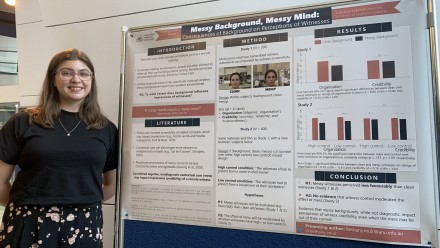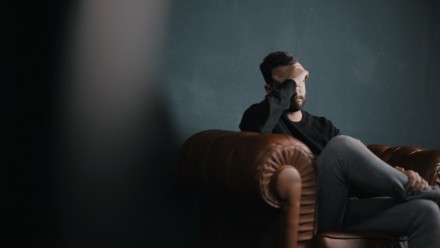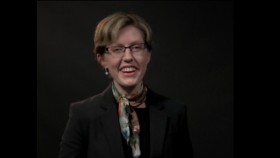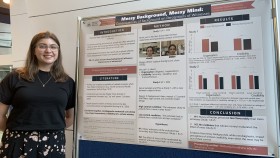Feeling guilty for catching COVID? Here's how to manage it
Written by Jo Lane, Clinical Psychologist and ANU Research Fellow
If you've caught COVID, it's normal to experience a range of emotions — including guilt.
You might feel guilty if you unintentionally contracted the virus, spread it to others, or because you weren't able to "help stop the spread and stay healthy", as encouraged by public health campaigns.
But it's important to recognise the context in which you experience guilt.
If you've been diagnosed with COVID, you might be feeling anxious about how you will be impacted by coronavirus — physically, emotionally, financially and socially.
You may feel isolated, unwell or experience sleep deprivation. You may feel embarrassed, out of control or powerless.
You may be worried for those with whom you may have shared the virus, particularly if you're a parent or you have vulnerable or unvaccinated friends and family.
Guilt is a normal emotion, but it can be managed. Here are some strategies you may find useful if you're feeling guilty yourself.
Acknowledge your feelings
Guilt can often arise when we feel out of control. If you've tested positive to COVID, it's normal to try to make sense of what's happened.
You may be wondering:
- Where did I get it from?
- Did I give it to others?
- Did I not wash my hands properly?
- Was I wearing my mask properly?
It is also important to recognise that we may wrongly attribute how we got COVID — for example, by blaming someone who wasn't responsible — which can be unhelpful.
While we want to understand how we got COVID, we may not find out, and ultimately it doesn't change the outcome.
Pay attention to your self-talk
This is important for people who have an exaggerated sense of responsibility regarding their diagnosis or have perfectionist traits.
Instead of blaming yourself — "It was my fault" — you could acknowledge the factors outside your control: "I did everything I could but COVID is really contagious".
It is easy to fall victim to hindsight bias by focusing on what you should have done in the past.
But you can't go back and change what happened; you can only focus on what's to come.
Set clear boundaries
When you're letting people know, remember you can't control how they'll react.
Remember you can text or email people if you're concerned you'll find their response unhelpful. You could also ask a friend or family member to notify them on your behalf.
It also helps to reflect on how you've managed guilt in the past.
When did you feel guilty before? What did you do then? What happened?
Emotions come and go, and guilt will come and go and change in intensity over time.
If the last two years has taught us anything, it's that we're all in this together. We need to be kind to ourselves and others.
Self-blame will not help with your recovery. Remind yourself that you're trying your best.
Some people find it helpful to keep a journal to track and reflect on their feelings.
It can also help to:
- Talk to a trusted friend or family member
- Check-in with others with COVID
- Talk to those who have recovered
If you're feeling overwhelmed or distressed, you can seek help from your GP, psychologist or support service.
You can access Beyond Blue's Coronavirus Mental Wellbeing Support Service by calling 1800 512 348 or ring Lifeline on 13 11 14.
Managing guilt can help us focus on recovering from coronavirus, taking time to rest our body and mind, and get the support we need.
Dr Jo Lane is a clinical psychologist and research fellow at the National Centre for Epidemiology and Population Health at The Australian National University. Article first published in ABC Everyday.














